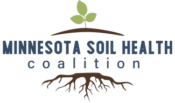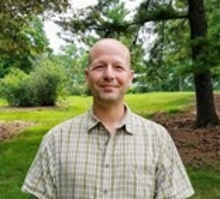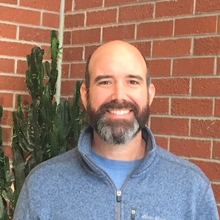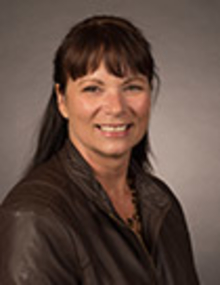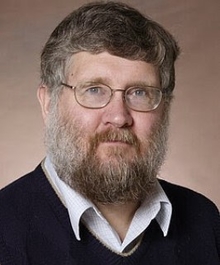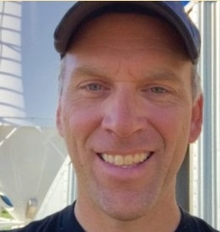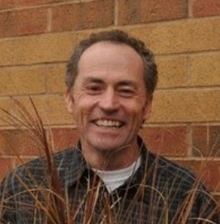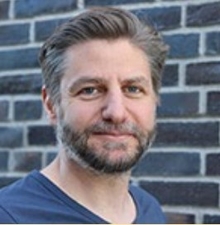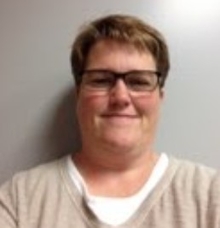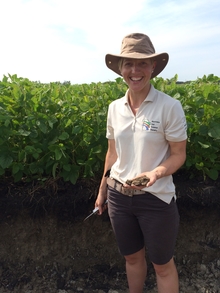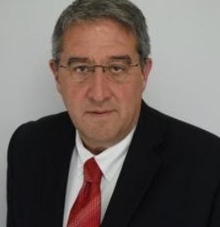
- This event has passed.
2022 Northern Soil Compaction Conference
Every operation on agricultural fields has the risk to cause compaction and drag down your yields and profit. Making each pass work for you is essential for maximizing your crop productivity year after year.
Join us at the Northern Soil Compaction Conference on January 26-27, 2022 for the latest in technical advice for alleviating your current compaction, building proven strategies to minimize your risk in the future, and the benefits you can expect.
Registration is $50 for both days.
A total of 5.5 CEUs will be available for Certified Crop Advisors (4.5 SW and 1 NM).
This event is co-sponsored by University of Minnesota Extension, North Dakota State University and Manitoba Agriculture and Resource Development.
More info at: https://extension.umn.edu/event/northern-soil-compaction-conference
Wednesday agenda
| Time | Topic | Speaker | Session |
|---|---|---|---|
| 9:00 – 9:10 a.m. | Welcome | Jodi DeJong-Hughes Extension educator – Soil and water quality, University of Minnesota Extension |
|
| 9:10 – 10:00 a.m. | The behavior and character of soil compaction | Aaron Daigh Associate Professor, Soil Physics and Hydrology, North Dakota State University |
1 |
| 10:00 – 10:35 a.m. | What’s happening underground? How compaction may affect IDC and salinity | Marla Riekman Soil management specialist, Manitoba Ag and Resource Development |
2 |
| 10:35 – 10:45 a.m. | Break | ||
| 10:45 – 11:35 a.m. | Compaction COST$! | Peter Johnson Resident agronomist, Real Agriculture, Ingersoll, Ontario |
3 |
| 11:35 a.m. – 12:05 p.m. | What do tillage, fertilization and soil compaction have in common? | Francisco Arriaga Associate Professor, Soil Fertility and Physics, University of Wisconsin – Madison |
4 |
| 12:05 – 12:15 p.m. | Grab lunch | ||
| 12:15 – 1:00 p.m. | Choose a Table Talk |
Thursday agenda
| Time | Topic | Speaker | Session |
|---|---|---|---|
| 9:00 – 9:05 a.m. | Day 1 summary and reminder of importance of healthy, well-structured soil | Marla Riekman Soil management specialist, Manitoba Ag and Resource Development |
|
| 9:05 – 9:35 a.m. | Can we utilizer cover crops and crop rotations to alleviate soil compaction? | Shannon Osborne Research Agronomist, USDA-ARS |
5 |
| 9:35 – 10:00 a.m. | Alleviating compaction with iron | Jodi DeJong-Hughes Extension educator – Soil and water quality, University of Minnesota Extension |
6 |
| 10:00 – 10:30 a.m. | Controlled traffic farming: A Manitoba experience | Adam Gurr Farmer and on-farm researcher, Agritruth Research, Inc. |
7 |
| 10:30 – 10:40 a.m. | Break | ||
| 10:40 – 11:30 a.m. | Soil compaction causes and mitigation strategies | Scott Shearer Professor and Chair, Agricultural Engineering, The Ohio State University |
8 |
| 11:30 – 12:10 p.m. | Soil compaction: Causes, consequences and avoidance | Thomas Keller Swedish University of Agricultural Sciencesand Agroscope research institute |
9 |
| 12:10 – 12:15 p.m. | Wrap Up | ||
| 12:20 – 12:30 p.m. | Grab lunch | ||
| 12:30 – 1:15 p.m. | Table Talk |
Table talks
Table talks will run from 12:15 to 1:00 p.m. on Wednesday, January 26 and from 12:25 to 1:10 p.m. on Thursday, January 27. You may select from the following topics:
- Terranimo program, Thomas Keller, Swedish University of Agricultural Sciences
- Soil compaction: Not a place to compromise, Ian MacDonald, Crop Innovation Specialist, OMAFRA, University of Guelph
- How pipeline and electrical lines affect your land, Aaron DeJoia, Director Environmental Solutions at Pilgrim Construction Co. LLC
- Tractor performance and fuel efficiency (Thursday only) Lorne Grieger, Agricultural Research and Development, Prairie Agricultural Machinery Institute (PAMI), Manitoba
- Strategies to minimize compaction impacts, Peter Johnson, Real Agriculture, Guelph
- Diagnosing compaction in your field, Francisco Arriaga, University of Wisconsin-Madison
- When is subsoiling the right decision? Marla Riekman, Manitoba Agriculture and Resource Development
- Iron deficiency chlorosis (IDC) and soybeans: What works and what doesn’t on your farm? (Thursday only), R. Jay Goos, Professor Ermitus, Soil fertility & management, North Dakota State University
- Controlled traffic farming, Adam Gurr, Farmer and on-farm researcher, Agritruth Research, Inc
- Precision inflation, Ken and Sally Brodbeck, Central Tire Inflation Systems (CTIS) for agricultural equipment
- Utilizing cover crops to improve soil compaction, Shannon Osborne, Research agronomist, USDA-ARS
- Tires and tracks: What can I do about compaction on my farm? Scott Shearer, Professor and Chair, Ag Engineering Department, The Ohio State University
- Nutrients and compaction, John Heard, Soil fertility specialist, Manitoba Agriculture and Resource Development
- Plant disease concerns in 2021 (Wednesday only), Andrew Friskop and Samuel Markell, North Dakota State University
Conference speakers
Francisco Arriaga, University of Wisconsin
Dr. Francisco Arriaga is an Associate Professor and Extension State Specialist with the Department of Soil Science at the University of Wisconsin-Madison and UW-Extension. His research and outreach programs focus on management practices for soil improvement of agricultural systems, including soil health and water quality. Dr. Arriaga is the recipient of the Rothermel-Bascom Professorship in Soil Science and is a fellow of the Soil and Water Conservation Society.
Aaron Daigh, North Dakota State University
Aaron Daigh is an Associate Professor of Soil Physics and Hydrology in the Soil Science Department at North Dakota State University. He has a PhD in Soil Science and Environmental Science from Iowa State University and has worked at NDSU since 2013 where 90% of his time is dedicated to research. Much of his research has focused on soil water management, reclamation, remediation, and agronomy.
Jodi DeJong-Hughes, University of Minnesota Extension
Jodi DeJong-Hughes has been a Regional Educator with the University of Minnesota Extension for over 24 years. Her area of specialization includes tillage systems, soil compaction, and improving soil health. Jodi’s work focuses on reducing soil erosion and building soil health to improve the grower’s bottom line and to reduce the movement of soil and nutrients to our natural waterways. She enjoys working alongside growers, Ag. industry, and government agencies to bring high quality, educational programs and research to the people of Minnesota. @SoilLorax
Jay Goos, Professor Emeritus, North Dakota State University
Jay grew up on a farm in western Iowa, received his PhD in Agronomy from Colorado State University, and has been on the faculty of the Department of Soil Science at NDSU since 1980. He recently retired.
Adam Gurr, Manitoba farmer
Adam is a proud husband and father to four children between the ages of 6 and 14. He owns and operates a third-generation small grains farm with his family located NE of Brandon, Manitoba. In 2015 he started Agritruth Research Inc. with his brother in-law; they deliver agronomic data generated on their farm through a web platform to interested parties and they also conduct field-scale agronomic research trials under contract to companies in the agriculture industry. Adam has a diploma and degree in Agronomy from the University of Manitoba and a Master’s degree in Agronomy from Iowa State University. Adam hopes to share with you a little about their cropping system, in particular the CTF component as he feels it is a relevant discussion in this new era of Soil Health and that it has a role to play in the development of more sustainable cropping systems.
Peter Johnson, Real Agriculture
Peter, @WheatPete, is the resident agronomist with Real Agriculture, where he posts a weekly podcast “Wheat Pete’s Word”. He is a regular on “Agronomy Monday” on Real Ag radio, Sirius Satellite Radio 147. Peter spent 30 years as the Ontario Cereal Specialist, and loves to talk anything agriculture, especially wheat! He leads the Middlesex Soil and Crop Improvement Association’s applied research program, is the Environmental Advocate for the Land Improvement Contractors of Ontario, and is a member of the Ontario Compaction Team. Peter operates a small farm near Lucan, Ontario, where he constantly tries out new production ideas, and where the “rubber hits the road”! He is enthusiastic and passionate about agriculture, and loves to be challenged by growers. So “have at him”!!!
Thomas Keller, Swedish University of Agricultural Sciences
Thomas Keller is a professor of soil mechanics and soil management at the Swedish University of Agricultural Sciences (SLU) in Uppsala, Sweden, and a scientist with the Agroscope research institute in Zürich, Switzerland. His research interests include soil structure dynamics due to natural processes and soil management, earthworm bioturbation and soil-plant interactions, soil mechanical processes related to soil compaction and soil tillage, impacts of soil management on soil structure and soil functions.
Shannon Osborne, USDA-ARS
Dr. Osborne is a Research Agronomist with the US Department of Agricultural-Agricultural Research Service whose research focuses on understanding how soil and crop management options influence the soil environment and how these practices can be developed into production systems that maintain or improve our soil resource conservation and environmental quality, while providing production efficiency.
Marla Reikman, Manitoba Agriculture and Resource Development
Marla Riekman is the Soil Management Specialist with Manitoba Agriculture and Resource Development. She earned a Bachelor of Science in Agroecology and a Master’s Degree in Soil Science, both from the University of Manitoba. Before joining Manitoba Agriculture in 2007, Marla worked as the Farm Manager for the Manitoba Zero Tillage Research Association and also as a Soil Conservationist with the Prairie Farm Rehabilitation Administration. Marla’s main focus is to provide extension on dealing with problem soils and maintaining long-term productivity by managing soil health. Marla’s passion for soil has even crept into her personal life – she is known to create jewelry with soil in her spare time!
Scott Shearer, The Ohio State University
Scott Shearer received his Ph.D. in agricultural engineering from The Ohio State University (OSU) in 1986. Currently, he serves as Professor and Chair of Food, Agricultural and Biological Engineering at OSU. Highlights of his research career include development of methodologies and controls for metering and spatial applying crop production inputs, modeling of agricultural field machinery systems, autonomous multi-vehicle field production systems and strategies for deployment of UAVs in agriculture. He has lead research supported by over $12M in grants, authored more than 200 technical publication, and has made numerous invited presentations at international conferences, professional meetings and farmer forums. Dr. Shearer is a Fellow of the American Society of Agricultural and Biological Engineers.
